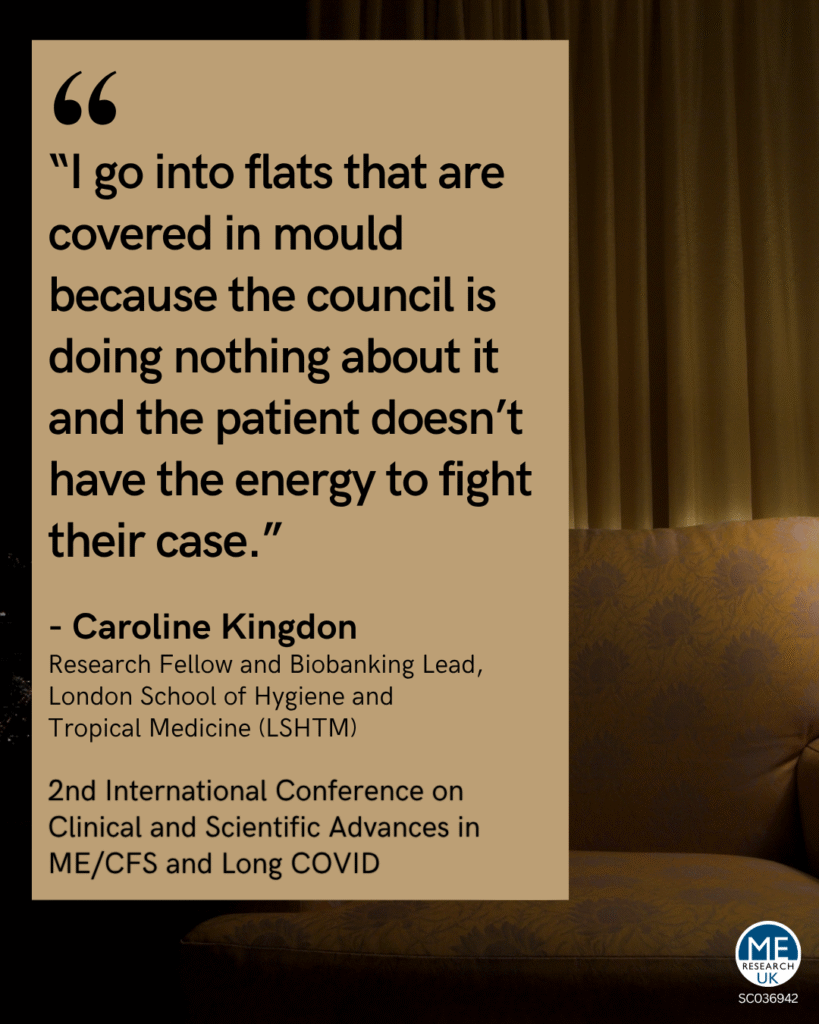The 2nd International Conference on Clinical and Scientific Advances in ME/CFS and Long COVID (November 12th-13th) is currently being held in Porto, Portugal, and ME Research UK has been attending remotely.
A highlight from this morning’s session was Caroline Kingdon’s insightful talk detailing her experiences visiting people with severe ME from a researcher’s perspective, rather than as a nurse (her original training), and recommendations for better care. She described the profound alienation and isolation faced daily by those living with severe ME, compounded by a lack of understanding from healthcare professionals, family, and friends.
Caroline shared a number of moving quotes that captured the realities of living with severe ME, including:
- “Living with ME is like walking through treacle, everything requires extraordinary effort.”
- “When someone visits, I have to choose. I can either eat a biscuit and have a cup of tea or listen and respond. I cannot do both.”
She also highlighted the complexity of symptoms through requests made by individuals or those associated, such as:
- “Would you mind shining a light on my arm to take blood? Away from my eyes? I just can’t tolerate any light.”
- “Please don’t wear freshly washed clothes as the smell of detergent or softener can worsen her symptoms.”
Throughout her presentation, Caroline discussed the precautions and adaptations she makes when visiting people with severe ME, giving examples of how she tailors each visit to the individual’s needs. She urged healthcare professionals to consider every aspect of consultations from the environment to communication style, including paying close attention to aspects such as clarity and tone of their language.
She outlined key principles for providing safe, effective, and compassionate care, including:
- Ensuring care is appropriate to the stage and severity of the disease
- Understanding individual health and social needs
- Practising competent care that involves really listening to the patient and supporting pacing to minimise post-exertional malaise (PEM)
- Reducing sensory overload (from noise, light, or smell)
- Maintaining infection prevention practices
- Developing individualised care plans
- Being aware of available benefits and disability support resources
Finally, Caroline emphasised that supporting people with severe ME requires ongoing commitment and compassion, essential to meaningful care.
Watch Caroline Kingdon’s conference talk

Read NICE 2021 Guideline for ME/CFS – Key Recommendations for Better Care




